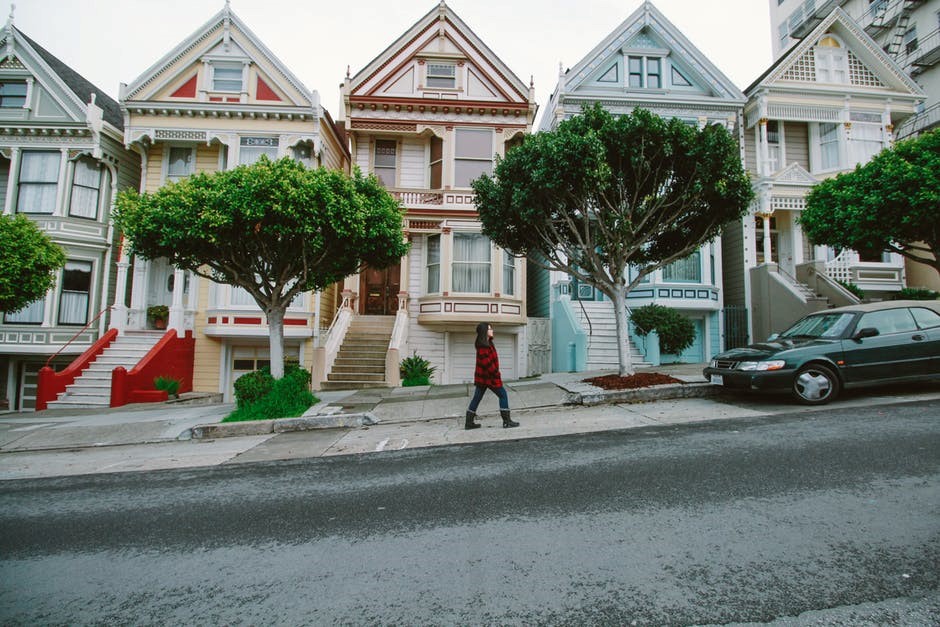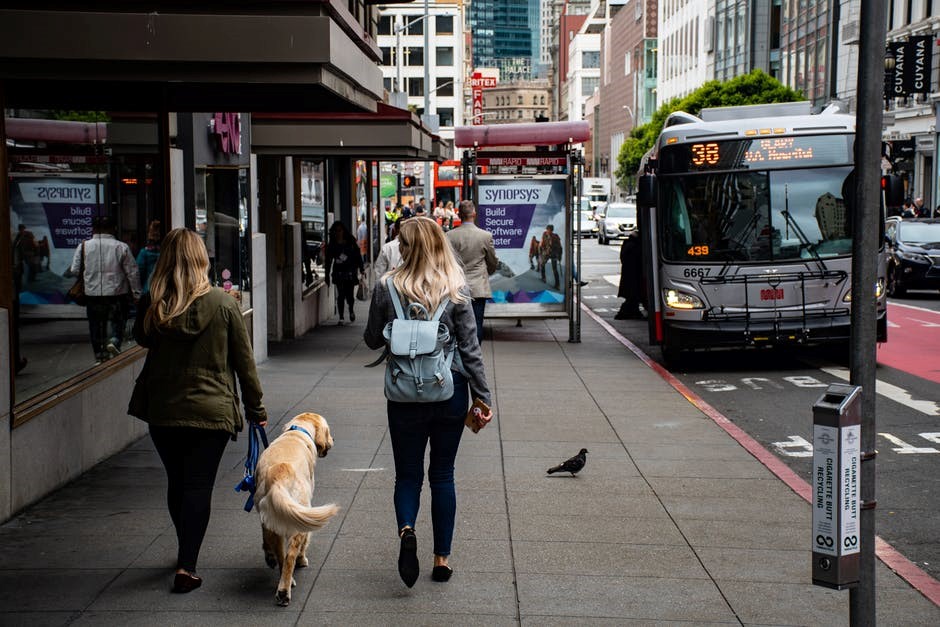
fciwomenswrestling.com femcompetitor.com article, pexels.com Burst photo credit
Excursions back home to visit family and friends at Rebecca’s parent’s spacious San Francisco home always included delicious home cooking, sharing stories and old memories along with energetic singing and dancing.
How time passes.
What was lost on Rebecca as she and her two siblings eventually sold their remaining parent’s home after she passed was how many possessions her parents had accumulated over the years.
During the times that she had visited, all of those material possessions seemed necessary and in their rightful place given the design of each room in a four bedroom home complete with dining and family rooms, a sitting room, an office, three bathrooms and a two car garage.

When it was time for the sisters to dispose of everything they didn’t imagine how hard and long it would take to truly clear and clean the house out before deadline.
All of those once precious material items surprisingly became arduous and a burden.
In her opinion, San Francisco is not the greatest place for garage sales. Fortunately one of her sisters stayed involved in the religion that they were raised in, which Rebecca found no need for as an adult so her sister had plenty of church members to give so many of their family heirlooms away to for free.
They used Junk King to haul away so much of the rest.
It broke Rebecca’s heart that a substantial amount of her family heirlooms in a practical way were no longer valuable. That really surprised her. Some of the items she was able to sell to pawn shops and appropriate second hand stores but for pennies on the dollar.
Even old vinyl albums from the 1960s and 70’s except for very few would not even fetch one dollar each.
Something became very clear from her personal story.
So often in life we live with too much stuff. It’s really not necessary.
Later while relaxing with one of her sisters the story came out that one of her nieces, a few years out of college, had desired to stay in the San Francisco Bay Area but lost her job and to Rebecca’s complete surprise had lived out of her car for quite some time.
She had not known that.
Eventually her niece decided to move about 90 miles away to Sacramento where apartments and Condos were much cheaper and did secure a job where she could live within her means.
Her young relative’s plight of having little, combined with her parent’s lifestyle of having too much, intrigued her about how all of us, no matter our situation, could live a lot more efficiently with less.
When you think about it, if you are older and have accumulated a massive amount of material possessions, mostly what you are doing is burdening your surviving children to break down the house and dispose of them.
In Rebecca’s case they spent close to $1,000 just shredding old bills and documents that her parents kept in file cabinets.
There had to be a better way.
This inspired Rebecca to explore watching online videos about the tiny house movement.
What impressed her was how so many couples of all ages downsized, got rid of most of their possessions and lived very efficiently in far more greener, tree filled wide open spaces closer to nature that seemed absolutely healthier. It also freed them up to travel more given the lesser financial restraints commuter living so often imposes. Some of them actually down sized to vans and campers so they were constantly traveling while they earned an income online.
They were positively forced to become more creative.
Their new situation added a major benefit.
The family had far more time to spend together.
“The ultimate goal of a more effective and efficient life is to provide you with enough time to enjoy some of it.”… Michael LeBoeuf
There are so many videos online regarding this movement. We loved this one on YouTube while it lasts. https://www.youtube.com/watch?v=xBf2QwcMlac
This now impelled Rebecca to call her niece and ask a simple but intriguing question.
How in the world did she do it?

Her niece, who we will now call Kristy, once embarrassed, was glad to share.
After her dramatic change in situation, Kristy went online and did a lot of research herself.
Kristy began to break things down by category on how she was going to live far more efficiently. There was no other realistic option.
She absolutely didn’t want to fall into the trap of keeping up with the young Joneses by taking on credit card debt and trying to keep up appearances. She had already paid off her student loans and was very fortunate that her parents paid for most off her college education.
Speaking of credit card debt. As published at CNBC on January 23, 2018, “The average American has a credit card balance of $6,375, up nearly 3 percent from last year, according to Experian’s annual study on the state of credit and debt in America. Total credit card debt has reached its highest point ever, surpassing $1 trillion in 2017, according to a separate report by the Federal Reserve.”
That pathway was absolutely not for Kristy.
First things first.

After losing her higher paying job, Kristy secured a job at a fast food restaurant to keep money coming in to preserve her nice savings.
In terms of her possessions, deciding to live in her car presented her with two basic options. Place them in storage or the second choice was to sell, barter or give them away.
She chose door number two.
The irony was that when her mother and aunts had cleared out her grandparent’s larger home, Kristy could have claimed so much of their home goods but only chose what was practical.
What was that?
Clothes. This way she didn’t have to buy the practical items while she only purchased a few trendier items at thrift stores.
Lesser job now secured, it was time to look at her living space.
She often parked in a large discount big box retailer’s parking lot who was sympathetic to the plight of the homeless in the super expensive San Francisco Bay Area. We won’t say their name because their policies could vary from store to store depending upon the region.
As a woman who often feared for her safety, what she liked about it was that she got to know the security team who looked after her at night even allowing her to park closer to the store.
The retailer didn’t want homeless people camping there with shopping carts and dirty bags because that could offend customers but since they were open close to 24 hours a day, there were cars there all of the time and Kristy’s would easily blend in.
Kristy would use their restrooms when needed.
She didn’t like sponging off so she found a very inexpensive membership at a smaller franchise health club where she could workout, take nice hot showers and swim.
The club was her only major expense so to speak but it was absolutely worth it because she still felt clean and normal while socializing with other members though never revealing that she lived in her car.
Now? It’s time to eat.
Kristy remembers as she was growing up, her family often threw left over food away. Now she made a decision that whatever she purchased in dried goods, she would only consume a third of it and save the one fourth amount untouched for the last week of the month. This worked extremely well with paper towels and toilet paper. At that point in time it was like having one week where you ate for free.
Great idea.
Kristy once had a job as a waitress and remembered how it was great having cash on hand almost on a daily basis. She found that even in the same amount, cash is more practical than using her ATM because she would place the change in a large jar and it would accumulate while on the other hand, with the ATM it simply gets lost.
Though she wasn’t getting tips, she loved the idea of using cash instead of the ATM because after one month of saving change, it accumulated enough to the point where she used it to make a dent in her food budget for the first week of the month.
Now it was as though she ate for free the last week of the previous month and the first week of the new month.
Brilliant.
Kristi also found what was equivalent to the Dollar or 99 cent store and purchased about 85 percent of her food and toiletry budget there. She could easily live off of $25 dollars in groceries a week while supplementing it with meat from her job which often came for free or at a discount.
She began to learn the neighborhoods and parks near homes that had fruit trees hanging over the fence. During certain seasons she had plums, grapefruits, oranges and apples a plenty. On her day off from work, instead of driving to these choice spots, she would walk.
“Parks represent an efficient, cost-effective way to improve public health.”… Chuck Norris
Kristi was amazed at how she no longer needed cable and was delighted to dispense with the rising utility bills.
Our young heroine lived this lifestyle for about 14 months and was amazed at how much money she saved to add to her savings so by the time that she moved to Sacramento, she saved enough to put a down payment on a Condo with a 15 year loan.
Oddly enough as she looks back on what would be a traumatic experience for most, it is actually a warm memory for her due to how she responded to the transition.
So much of life is indeed about how we respond to the unexpected and unwanted.
Though she hopes she would never find herself in that situation again, she is far less frightened about that if it does occur.
After relating her story to Rebecca, the two have become closer and communicate more often.

It’s amazing how living efficiently can empower ourselves and inspire others.
~ ~ ~
OPENING PHOTO pexels.com Burst photo credit
https://www.cnbc.com/2018/01/23/credit-card-debt-hits-record-high.html



